Search based on the size of your current glasses
- Shop by shape
- Shop by colour
- Shop by size
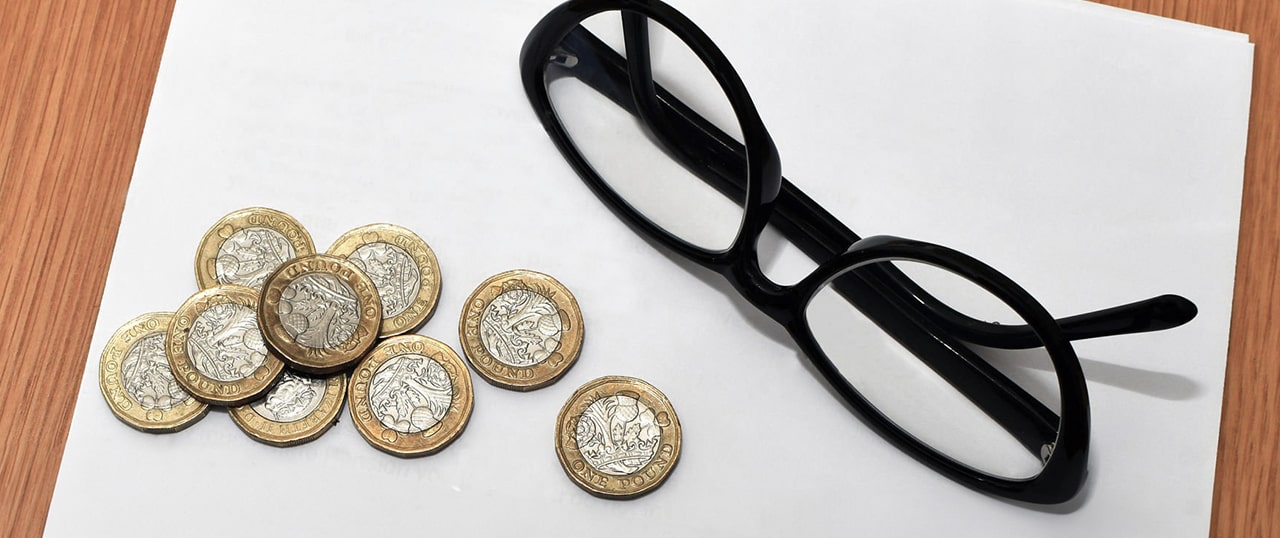
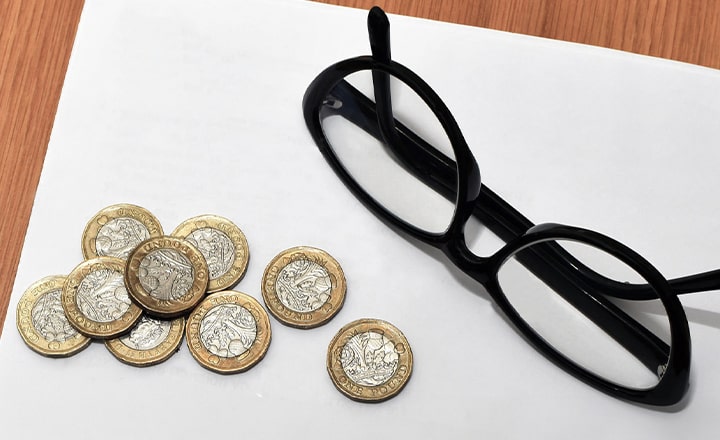
It can be difficult to fully comprehend and appreciate the overall cost of glasses and why different types vary in price so significantly. Why do you pay as little as £9 for some and others cost hundreds? Can there really be that much of a difference between them? In this article, we will discuss the various aspects that impact the overall value of your glasses so you can get an idea of where your money is actually going.
The price tag on the frames you choose will be impacted by the manufacturing process, running costs, the value and quality of materials and the types of lenses you need. Keep reading to discover how each of these factors impacts the overall cost of glasses.
The frames for your eyewear can be constructed from a variety of different materials and may entail various intricate methods of design that require extra time, a keen eye for detail and outstanding technique.
Premium materials tend to be lightweight, sturdy and hypoallergenic (suitable for people with allergies), namely titanium, stainless steel and acetate. High-quality frames like this are durable and so are more likely to last longer and maintain their aesthetic. If materials are overly pliable, then your glasses may start to slip off your face and offer a less comfortable fit over time. This won’t matter so much if you are not using them that frequently but for people who need to wear their eyewear constantly, this can become a real nuisance and before long, you will have to invest in a brand-new pair. Another important feature of glasses to look out for is spring hinges which are designed to be more flexible and therefore allow your glasses to sit more comfortably on your face. Glasses at a very affordable price will be made of less sturdy materials and will be unlikely to have this particular feature.
Persol glasses are an excellent example of high-quality craftsmanship. They are handcrafted in Italy using the finest metal and acetate. These frames all have unique, flexible Meflecto temples which eliminate pressure along the sides of your head and naturally adapt to the shape of your face for a bespoke fit. At Glasses Direct, we also have a stylish range of eco-friendly eyewear which require meticulous manufacturing processes.
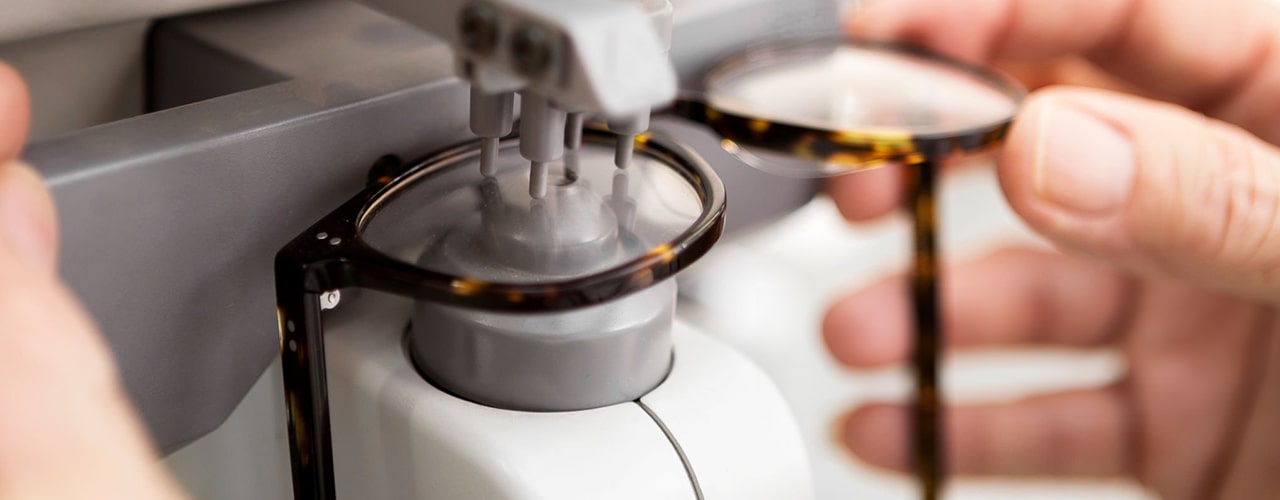
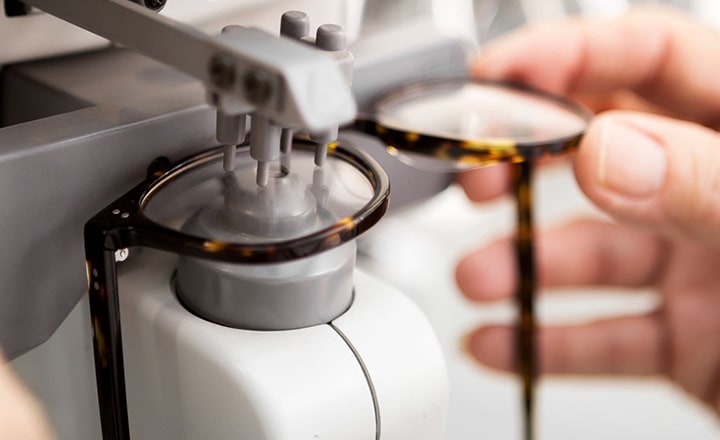
Many designer eyewear brands have their own distinguishable style that makes them stand out. Tom Ford frames all showcase a signature T-shaped metal detail along the temples. Emporio Armani are another brand famous for their eye-catching eagle logo and iconic branding. All designer frames will have their own unique design which has a story to tell and is inspired by their own rich heritage. Of course, it is not just exclusive to designers. This can also be said for our own collections at Glasses Direct. London Retro frames for example have consistent timeless styling and many of the acetate frames feature a metal stripe along the temples which is a subtle but signature touch.
The price of your eyewear may also depend on the type of customer service you receive. When you shop for glasses at a local optician on the high street, the cost of running several stores, having products available to sell and employing staff for those premises is likely to factor into how much you will have to pay for the final product. The likelihood is that you want to try glasses on in-store after an eye test and will then have to wait around to seek relevant advice from members of staff available to speak in-person. If you then decide you want to purchase new eyewear, you will have to wait some time for them to be ready and even then, you might have to collect them yourself. This again will mean paying more for your glasses due to the services you have received and will inevitably take up more of your time.
Meanwhile, if you order glasses online, there will be no need for physical stores to display the products. Instead, you can browse a vaster collection online whenever it is convenient for you without any pressure from pushy salespeople. By browsing for glasses online in your own time, there will be less requirement for human interaction. Even if you choose to do your research and take a look at our blog for some handy style tips, or even call our friendly customer service team for help, ultimately it will take less time and cost far less. Our website filters will help you narrow down your search and find the right shapes and styles. Plus, your glasses will be sent out directly to your door. If you want to try frames on first before making a purchase, our Free Home Trial gives you seven days to try them on from the comfort of your own home. See how they look with your favourite outfits, get a feel for them and show them off to your loved ones.
Ultimately, for these reasons and more, shopping online will help you cut costs when buying new glasses. In fact, according to our recent survey, our customers saved an average of 49% when shopping online with us, compared to the last time they made a purchase on the high street. This is equal to an average saving of £103!
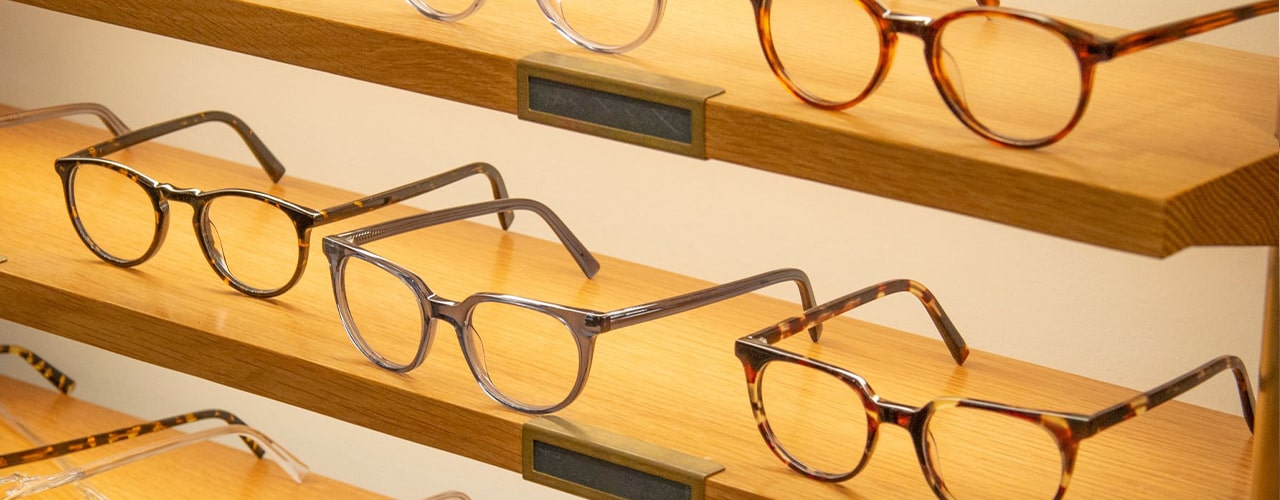
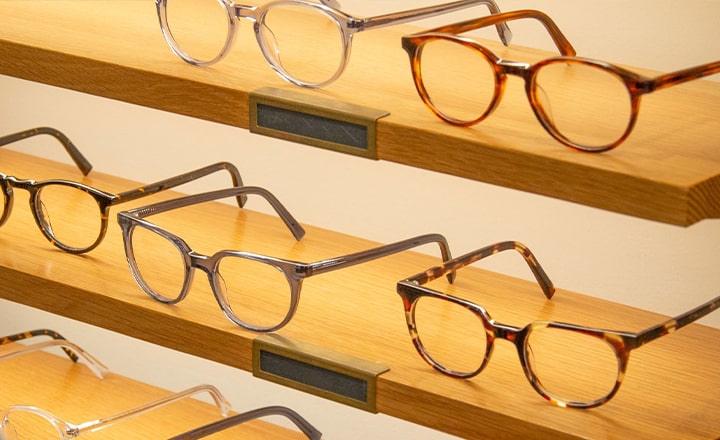
If your lenses are more advanced, you will have to pay more, especially bifocal and varifocal lenses because they feature more than one prescription and allow you to see at multiple distances. In order to be made, these lenses require sophisticated technology which inevitably costs more. However, it means you won’t have to buy separate glasses for different uses like reading and driving. We have a variety of options available at different price points, so depending on your requirements, you can probably find the best option for you.
The thickness of the lens will also impact the cost of your glasses. Depending on the strength of your prescription and which frame size you choose, you may actually require thinner, lighter and hard-wearing lenses. People who are moderately or severely short-sighted can really benefit from thinner lenses as the thickness of the edge of your lenses will be more prominent. This is also true if you are relatively or very long-sighted. In this case, thinner, flatter lenses will reduce the lens size at the centre. You will certainly notice the difference if you wear your glasses all the time and want them to look aesthetically pleasing whilst also not feeling too heavy on your face.
At Glasses Direct, all glasses come with free basic single vision lenses as standard. However, you may choose to have additional coatings for your lenses to help enhance your vision and improve their durability. We have a wide variety of lens options which are specifically designed to suit your unique requirements. Whether you wish to prevent eye strain when looking at your digital devices for extended periods, you need to see at more than one distance, or are keen not to be distracted by dazzling reflected glare from car headlights, there is a lens solution suited to you! This is also the case if you want to make your lenses more hard-wearing as you can choose to include additional lens packages which all come with a reliable scratch-resistant coating and depending on which you choose, you can also benefit from an anti-reflect and anti-UV coating to eliminate glare and protect you from bright sunlight.
Sunglasses tints may also impact on the overall cost of your eyewear. They not only provide 100% UV protection, but can also offer other benefits depending on which type you choose. Polarised lenses improve visual comfort and clarity by enhancing contrast and blocking horizontal glare from reflective surfaces like metal, glass, water and snow. They are ideal for driving and people who spend a lot of time outdoors or participate in outside activities like cycling, running or skiing, especially in snowy or wet environments.
As for photochromic lenses, they allow you to enjoy the ultimate convenience when you are on the go. They seamlessly adapt to changing light conditions and go from a standard pair of glasses indoors to a pair of sunglasses outside in bright sunlight. Transitions® lenses in particular use the latest technology and are highly responsive. You can choose from the three of the most popular options, which includes Transitions® Drivewear® lenses, designed specifically to offer a safe and comfortable driving during the day.
We have a wide range of frames available to suit all needs and budgets. Our frames start from just £9 and we have affordable 2-for-1 ranges that allow you to enjoy long-lasting quality and comfort whilst following the latest fashion trends. Plus, unlike, high street opticians, you can share your spare and split the cost with a friend or family member by giving them your free second frame. As long as it is up to the same value as the first, it can be a totally different brand, design and prescription.
Meanwhile, if you love Premium Designer brands, you can enjoy some of the most fashionable and iconic eyewear designs from as little as £79. Discover top names like Dolce & Gabbana, Ray-Ban®, Ted Baker and more!